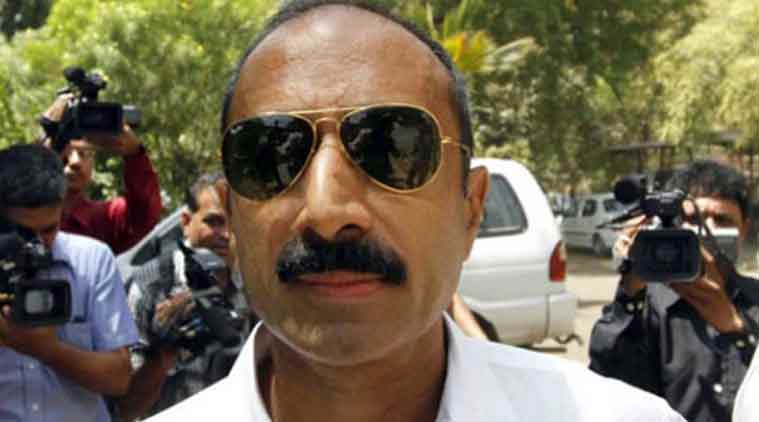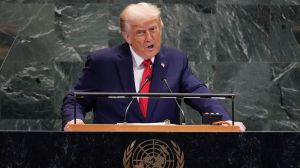Sanjiv Bhatt, who took on Gujarat government for 2002 riots, now faces the heat
A day after Bhatt's removal from the IPS following the Gujarat government’s proposal to charge him of misconduct, the government sent him a show cause notice to explain an alleged sex video.
 IPS officer Sanjiv Bhatt.
IPS officer Sanjiv Bhatt.
The proceedings by the Gujarat government against 1988 batch IPS officer Sanjiv Bhatt began soon after he had filed an affidavit in the Supreme Court in 2011 claiming that he had attended a meeting on February 27, 2002 at former chief minister Narendra Modi’s residence in Gandhinagar after the Sabarmati Express burning in Godhra, where the then chief minister had allegedly told his officers to “allow Hindus to vent their anger”.
A day after Bhatt’s removal from the IPS following the Gujarat government’s proposal to charge him of misconduct, the government sent him a show cause notice to explain an alleged sex video. The two notices are seemingly unrelated but have cast aspersions on his private life.
The official reasons for the removal from the IPS — the notice for which is dated August 13 — was apparently not the sex video for which the show cause notice was dated August 14.
[related-post]
The Gujarat home department claimed it had received a complaint along with a pen drive containing an 11-minute video clip which was investigated by the Forensic Science Laboratory in Gandhinagar to prove it was “not morphed”. Bhatt was held guilty of “having relationship with a woman other than his wife”, the notice said.
Bhatt is one of several people who took on the Gujarat government on the 2002 riot cases now facing the heat. Rahul Sharma resigned from the IPS in February this year after fighting a case for being denied promotion even as the Gujarat government continues to investigate him for having collected call details from two mobile service providers as part of investigations of the 2002 riot cases. Sharma is now a practising lawyer.
Three days before the action on Bhatt, Mumbai based activist Teesta Setalvad, who led the fight for justice for victims of the 2002 riots got relief from the Bombay High Court on possible arrest on a case by the CBI which accused her and her husband Javed Anand of being a “threat to national security”.
The CBI had sought her arrest after it had lodged an FIR based on the Union Home Ministry’s findings of alleged discrepancies by the two of their NGOs under the Foreign Contribution Regulation Act (FCRA) and conducted raids on their premises.
Before that, the Ahmedabad crime branch was investigating Setalvad and her husband in an alleged embezzlement case. The crime branch has accused the couple of spending the money collected from donations for riot victims for their personal use.
The crime branch affidavit before the SC to seek their custody of the couple went into the detail of how their money was spent on “consumption of liquor, whisky, rum, wining and dining (it also named the restaurants), ear buds and sanitary napkins”.
Setalvad’s organisation Citizen for Justice and Peace was one of the petitioners on the basis of which the Supreme Court had appointed an SIT to probe nine of the biggest 2002 massacres, including the Naroda Patia case which saw former minister Maya Kodnani convicted for life.
Kodnani is out on bail since July 2014 on health grounds.
Photos



- 01
- 02
- 03
- 04
- 05



































